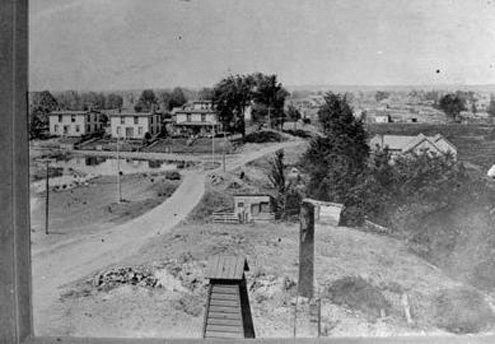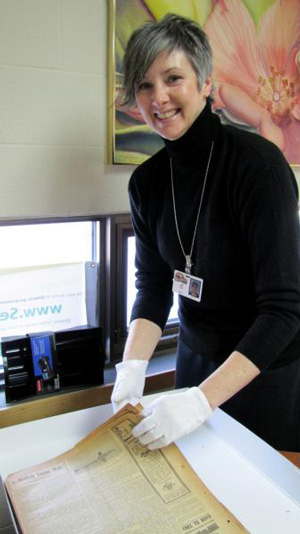 THUNDER BAY – “Those who fail to learn from history are condemned to repeat it” – That was the message running atop the blackboard in my Grade Nine History teacher, Mr. Enns’s classroom. Today, with the Internet a great deal of the history of the world is being shared online. There are projects like the BBC and the British Museum which offer an online History of the World. There are enormous efforts ongoing to digitize much of the information saving it for future historians.
THUNDER BAY – “Those who fail to learn from history are condemned to repeat it” – That was the message running atop the blackboard in my Grade Nine History teacher, Mr. Enns’s classroom. Today, with the Internet a great deal of the history of the world is being shared online. There are projects like the BBC and the British Museum which offer an online History of the World. There are enormous efforts ongoing to digitize much of the information saving it for future historians.
Here in Thunder Bay, the local museum offers an amazing array of exhibits sharing our community and region’s past. Across Ontario there is a project underway to further digitize our province’s history.
The move is part of a project with Our Ontario. Our Ontario is partnering with more than 30 public libraries and 20 other community organizations from across Ontario to implement the CDP. Funded through a $15-million grant to Southern Ontario Library Services and Ontario Library Services North from the Ontario Ministry of Tourism and Culture, CDP partners are provided with valuable equipment, staff and training, at no cost to the participating institutions. “I’m very thankful to Knowledge Ontario for supporting us,” says Jacques.
 Organizations participating in the project stretch across almost 1,500 kilometres of the province. They include libraries and museums with large archives; single-person libraries, such as the Head, Clara and Maria Public Library, north of Algonquin Park; Franco-Ontarian community organizations like the West Nipissing Public Library, near North Bay; and a First Nations library, the Kanhiote Tyendinaga Territory Public Library near Deseronto.
Organizations participating in the project stretch across almost 1,500 kilometres of the province. They include libraries and museums with large archives; single-person libraries, such as the Head, Clara and Maria Public Library, north of Algonquin Park; Franco-Ontarian community organizations like the West Nipissing Public Library, near North Bay; and a First Nations library, the Kanhiote Tyendinaga Territory Public Library near Deseronto.
Recently, a woman in British Columbia was doing genealogy research and typed her father’s name into Google. following a link to the Petawawa Public Library, she was astonished to hear her father’s voice emanating from her computer speakers. He’d passed away a decade earlier. “I thought that was really extraordinary,” says Maggie Jacques, special collections librarian at the Petawawa Public Library, who helped place the 20-year-old interview online. It was part of a collection of interviews with city’s early residents. When it comes to online research, she notes, “You never know where it will take you.”
The audiocassette recording was digitized thanks to a two-year project coordinated by Knowledge Ontario (KO), a provincial not-for-profit collaborative. The Community Digitization Project (CDP) is an extension of KO’s Our Ontario service, which provides the tools and support for Ontarians to create and display digital content for online discovery.
Genealogists are not alone in benefiting from the CDP, which already has created more than 36,000 digital files of everything from 19th-century photographs to old diaries. In Prescott-Russell, a largely francophone area east of Ottawa, the OPP used heritage photos from the collection for their annual calendar.
The CDP has also created something of an information avalanche for participating institutions. Jacques notes that patrons who see staff digitizing materials with scanners, cameras and other equipment often ask how they can contribute.
CDP partners often run “digitization days” to encourage residents to bring in family materials and collections from their basements and attics (the materials are later returned to their owners). People respond in droves, often revealing lost treasures. In Tweed, a small town north of Belleville, residents who heard about the CDP contributed images and documents about Sulphide, a mining ghost town.
Loren Fantin, project manager for Our Ontario, delights in the program’s popularity. “We work hard to ensure that we make Our Ontario tools and services accessible and easy to use for both novices and expert users. It’s terrific to bring Ontario communities on board so they can share and tell our stories to a wide audience.”
